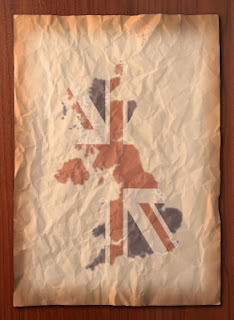 The main peculiarity with Una's story was her complete lack of knowledge of grandparents who, it turned out, were proud of her - with apparently no definitive 'ooh, that's what did it' reason that granddaughter and grandparents were forever kept apart.
The main peculiarity with Una's story was her complete lack of knowledge of grandparents who, it turned out, were proud of her - with apparently no definitive 'ooh, that's what did it' reason that granddaughter and grandparents were forever kept apart.Of course, the other thing of note in this episode was how much the Rowntree's company seemed to pop up. Una had been in their advertising campaign and visited the factory in which her grandfather had worked, without having the faintest of ideas that he had once lived a couple of streets away and worked where she was standing. Coincidences do seem to crop in almost every family's story, but that was an odd one - and the footage of the kitsch old ads was amazing.
This episode definitely proved that it is possible to trace your UK ancestry with sometimes a very sketchy starting point - Una didn't know her grandparents' names at the start of the episode. And there were some lovely little moments too - Una's innocent naivety at the lack of a father's name on her grandmother's birth certificate and complete technophobia definitely had the power to raise a smile.
All in all, a great return for a great series. More to come!

